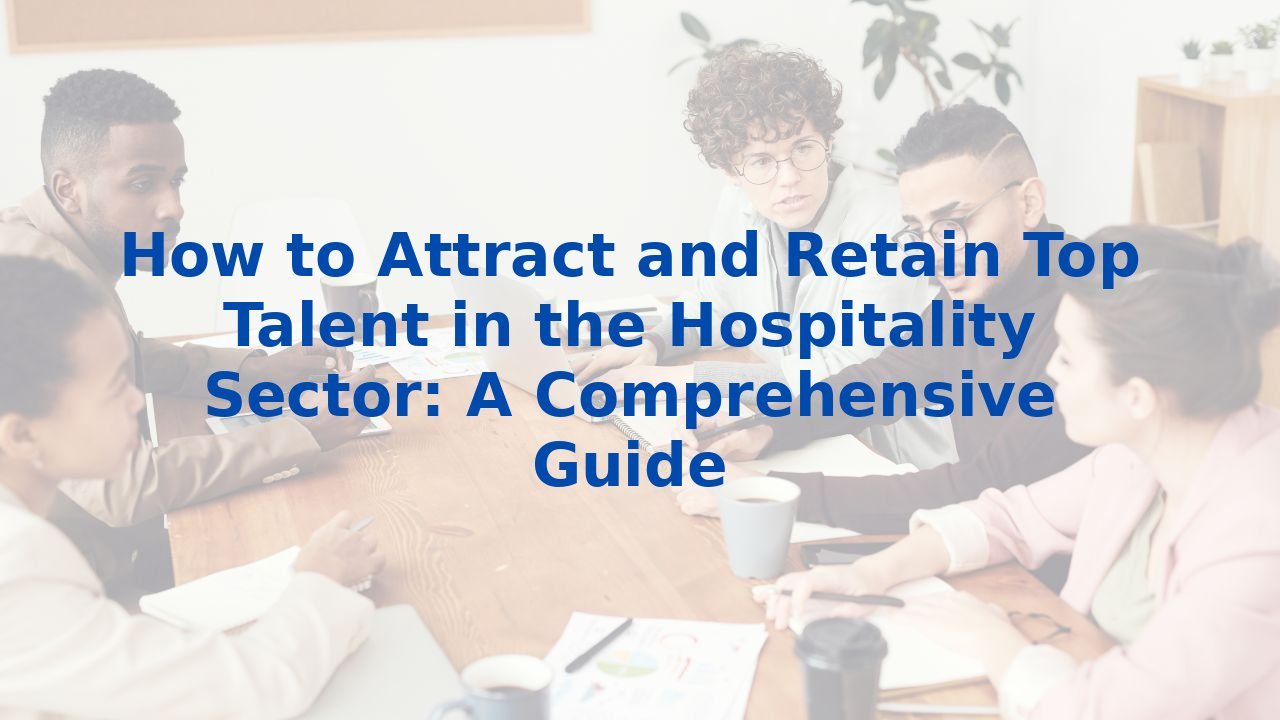How to Attract and Retain Top Talent in the Hospitality Sector: A Comprehensive Guide
How to Attract and Retain Top Talent in the Hospitality Sector: A Comprehensive Guide
The hospitality sector thrives on exceptional service, creating memorable experiences for guests, and fostering a culture that nurtures talent. As the industry evolves, so do the methods for attracting and retaining top talent. With the integration of artificial intelligence (AI) into business processes, organizations can not only enhance efficiency but also cultivate an environment where talent feels valued and motivated. This guide will explore how AI can revolutionize talent management processes, ultimately paving the way for success in hospitality.
1. Automating Recruitment Processes
The recruitment process can be labor-intensive and time-consuming. AI can streamline this process by automating routine tasks such as screening resumes and scheduling interviews. By leveraging AI algorithms to analyze thousands of applications, hiring managers can focus on candidates who fit the company culture and possess the right skills. This automation reduces human error and ensures that the best candidates are prioritized, saving time and improving the quality of hires.
2. Enhancing Employee Onboarding
A great onboarding experience is crucial for retaining top talent. AI can facilitate this process by creating personalized onboarding plans tailored to each new hire's needs and role within the organization. Interactive platforms can engage employees from day one, providing them with the necessary training and resources. This kind of personalized introduction enhances job satisfaction and sets a positive tone for long-term retention.
3. Data Analysis for Performance Management
AI excels at data analysis, enabling organizations to derive insights from employee performance metrics. By continuously tracking key performance indicators (KPIs), AI can help managers identify top performers and areas that may need improvement. This analytical approach ensures that feedback is timely and constructive, fostering a culture of continuous growth and development.
4. Personalized Employee Development
In the hospitality sector, providing employees with opportunities for development is key to retention. AI can analyze individual skill sets and career aspirations, allowing organizations to offer targeted training programs. This can include access to resources for skill enhancement or mentorship programs tailored to individual goals. Employees who see that their growth is valued are more likely to remain with the company long-term.
5. Predictive Analytics for Retention Strategies
AI can also help predict employee turnover by analyzing patterns in data such as job satisfaction, performance reviews, and employee engagement levels. By identifying early warning signs, organizations can implement retention strategies, addressing concerns before they result in resignation. This proactive approach not only saves costs associated with hiring and training new staff but also maintains a stable and experienced workforce.
6. Enhanced Employee Engagement
Creating a vibrant work culture is vital for retaining talent. AI can assist in gauging employee sentiment through advanced analytics and pulse surveys. By understanding how employees feel about their workplace, organizations can implement changes that resonate. Regular engagement initiatives powered by AI insights can keep teams motivated, leading to heightened job satisfaction.
7. Quality Control through AI
In an industry where customer satisfaction is paramount, AI brings valuable quality control capabilities to ensure that staff deliver exceptional service consistently. Automated feedback systems can analyze guest reviews and employee interactions, providing suggestions for improvement where needed. This commitment to quality not only enhances the guest experience but also empowers employees to take pride in their work.
8. The Role of Employee Training for AI
While AI transforms processes, training employees to leverage these technologies is essential. By providing comprehensive training programs that focus on AI integration, organizations can empower their workforce to utilize AI tools effectively. This not only improves operational efficiency but also fosters innovation. Employees become champions of change, continuously identifying new ways to enhance processes and service delivery.
Conclusion
Attracting and retaining top talent in the hospitality sector requires a strategic approach that embraces the transformative power of AI. By automating recruitment, personalizing development, and enhancing employee engagement, organizations can create a vibrant work culture where talent flourishes. As we move forward, integrating AI into HR processes will not only streamline operations but also foster a sense of belonging and purpose among employees. This commitment to innovation and growth heralds a new era for the hospitality industry, one where top talent is nurtured and retained for years to come.



